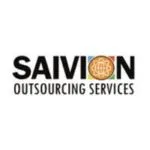
Top Construction Web Design Companies
Finding the right web design company for your construction business is essential to building a strong online presence. This curated list features top construction web design companies known for creating high-performance, mobile-friendly websites tailored for contractors, builders, and construction firms. These agencies offer services such as project portfolio showcases, lead generation tools, SEO optimization, and content management systems to help you attract and convert more clients. With detailed reviews, portfolio highlights, and service comparisons, this guide makes it easy for you to choose the best partner to build a website that reflects your brand and drives business growth.
List of the Best Construction Website Design Agencies | Top Construction Web Design Companies in the World

-
Employees: 11 to 50
-
Min. Project amount: $10,000
-
Country: NY, USA

Cyber Nest
-
Employees: 11 to 50
-
Min. Project amount: $25-$49/hr
-
Country: NY, United States
-
Employees: 101 to 250
-
Min. Project amount: $10000
-
Country: Karnataka, India
-
Employees: 11 to 50
-
Min. Project amount: $1,000+
-
Country: Singapore

Telepathy Infotech
-
Employees: 51 to 100
-
Min. Project amount: $5,000+
-
Country: Casper, WY

Onex Software
-
Employees: 11 to 50
-
Min. Project amount: $10,000+
-
Country: İzmir, Türkiye

Saivion India
-
Employees: 11 to 50
-
Min. Project amount: $1,000+
-
Country: New Delhi, INDIA

SAT Microsystems
-
Employees: 251 to 500
-
Min. Project amount: $250,000+
-
Country: Jeddah, Saudi Arabia

Elite M Commerce
-
Employees: 101-250
-
Min. Project amount: Undisclosed
-
Country: NJ, United States

Ecom Buzz
-
Employees: 0 to 10
-
Min. Project amount: $1,000+
-
Country: Kolkata, India
1.What Should I Look for in a Construction Web Design Company?
Choosing the right web design company for your construction business is crucial to creating an online presence that stands out. Here are key factors to consider when selecting the best agency for your project:
1. Experience in the Construction Industry
Look for web design companies that have experience working specifically with construction businesses. A team familiar with industry-specific needs can provide better solutions and understand the intricacies of marketing construction services online. They will know the best practices for showcasing projects, services, and expertise.
2. Responsive and Mobile-Friendly Design
A responsive website adapts to different screen sizes, ensuring a smooth user experience across mobile phones, tablets, and desktops. Given the growing use of mobile devices to browse websites, this feature is essential for reaching potential clients anytime and anywhere.
3. SEO Optimization
Search Engine Optimization (SEO) ensures that your website ranks well on search engines like Google. A good web design company should optimize your site for both on-page and off-page SEO, helping you gain visibility and drive traffic to your website. They should also have experience in local SEO, which is particularly valuable for construction businesses targeting local markets.
4. Lead Capture and Conversion Tools
A successful construction website should be designed to capture leads and convert visitors into clients. Look for web design agencies that integrate lead capture forms, contact pages, call-to-action buttons, and quote request forms that make it easy for potential clients to reach out and inquire about services. These tools help you capture information that can turn into profitable business opportunities.
5. Project Galleries and Service Pages
Your website should highlight your construction projects and the services you offer in an engaging way. Look for agencies that can create project galleries, case studies, and detailed service pages that showcase your expertise. These features help visitors quickly understand what you offer and build trust in your capabilities.
6. Integration with CRM or Project Management Tools
A seamless integration with Customer Relationship Management (CRM) systems or project management tools is important for streamlining your workflow and communication. A good web design agency will ensure your website integrates with tools like HubSpot, Salesforce, or Buildertrend, allowing you to manage client relationships and projects effectively.
7. Proven Track Record and Portfolio
Review the agency’s portfolio and client testimonials. A reputable construction web design company should have a collection of previous projects and positive reviews that demonstrate their ability to deliver high-quality websites. This will give you confidence that they can handle your project and deliver results.
8. Focus on High-Conversion Design
The ultimate goal of your website is to convert visitors into clients. Ensure the agency you choose focuses on high-conversion design principles, such as clear navigation, engaging content, easy-to-use contact forms, and trust signals like client testimonials, certifications, and awards. They should create a website that effectively communicates your value proposition and encourages users to take action.
By considering these factors, you’ll be better equipped to choose a web design company that understands your construction business needs and can build a website that drives growth and success.
2.How Much Does It Cost to Build a Construction Website?
The cost of building a construction website can vary widely based on several factors. On average, prices range from $3,000 to $20,000+. The price depends on the following factors:
1. Level of Customization
If you require a highly customized website with unique features, designs, and tailored functionality, the cost will be on the higher end of the spectrum. Custom designs that are specifically tailored to your brand and business needs can increase development time and cost.
2. Features and Functionality
The cost can increase depending on the features required. Websites with service listings, project portfolios, client case studies, quote request forms, and lead capture tools will generally be more expensive to develop than simpler websites with basic pages.
3. Content Creation
If you need content creation services, such as professional copywriting, photography, or video production to showcase your projects, this will add to the overall cost. High-quality content is essential for engaging visitors and improving SEO.
4. Integration with Third-Party Platforms
Many construction companies require integration with third-party tools or systems, such as CRM software, project management platforms, or quote generation tools. Integrating these systems requires additional development work, which can increase the overall cost.
5. Ongoing Maintenance and Updates
Some agencies offer ongoing website maintenance packages that include updates, security monitoring, and content changes. This is an additional cost to consider if you want your website to stay up-to-date and secure.
Overall, the cost depends on the complexity of your requirements and the level of customization you desire. It’s essential to work with a web design company that understands your needs and can provide a solution that fits both your budget and goals
The cost of building a construction website can vary widely based on several factors. On average, prices range from $3,000 to $20,000+. The price depends on the following factors:
1. Level of Customization
If you require a highly customized website with unique features, designs, and tailored functionality, the cost will be on the higher end of the spectrum. Custom designs that are specifically tailored to your brand and business needs can increase development time and cost.
2. Features and Functionality
The cost can increase depending on the features required. Websites with service listings, project portfolios, client case studies, quote request forms, and lead capture tools will generally be more expensive to develop than simpler websites with basic pages.
3. Content Creation
If you need content creation services, such as professional copywriting, photography, or video production to showcase your projects, this will add to the overall cost. High-quality content is essential for engaging visitors and improving SEO.
4. Integration with Third-Party Platforms
Many construction companies require integration with third-party tools or systems, such as CRM software, project management platforms, or quote generation tools. Integrating these systems requires additional development work, which can increase the overall cost.
5. Ongoing Maintenance and Updates
Some agencies offer ongoing website maintenance packages that include updates, security monitoring, and content changes. This is an additional cost to consider if you want your website to stay up-to-date and secure.
Overall, the cost depends on the complexity of your requirements and the level of customization you desire. It’s essential to work with a web design company that understands your needs and can provide a solution that fits both your budget and goals.
3.How Long Does It Take to Launch a Construction Website?
The timeline for launching a construction website generally falls within 4 to 12 weeks, but the exact duration depends on several key factors:
1. Website Complexity
The complexity of the website plays a significant role in the timeline. Basic websites with a few pages and standard features can be completed quicker, while more complex websites with advanced features such as custom forms, service listings, or project galleries will take longer to develop.
2. Number of Pages
The more pages your website has, the longer it will take to design and build. A website with extensive content, such as service pages, case studies, and a portfolio, will naturally take more time to develop.
3. Client Revisions
Timely feedback from the client is essential for keeping the project on schedule. If there are multiple rounds of revisions, the timeline may extend. Clear communication and quick decision-making can help reduce delays.
4. Additional Features
Websites that require extra features, such as animations, custom graphics, or API integrations (e.g., CRM or project management tools), will require additional time for development and testing.
5. Custom Projects
If your website requires a high level of customization—such as custom coding or integration with other systems—it could take longer to complete, as these projects require more specialized expertise and development time.
In summary, the launch of a construction website can take anywhere from a few weeks to several months based on the complexity, number of revisions, and features involved. It’s important to work closely with your web design agency to establish a realistic timeline for your project.
4.Do These Companies Offer Ongoing Support and Maintenance?
Yes, most professional web design agencies provide post-launch support to ensure that your construction website continues to function smoothly after it’s live. Key services typically include:
1. Website Maintenance
Agencies offer regular maintenance to ensure your website runs efficiently. This includes updating plugins, fixing broken links, and ensuring compatibility with new browsers or devices.
2. Content Updates
If you need to update your website with new project galleries, service offerings, or client testimonials, agencies can help with timely content updates.
3. Security Patches
To protect your website from potential threats, web design companies implement regular security patches and updates to safeguard your site from vulnerabilities.
4. SEO Monitoring
Ongoing SEO support ensures that your website remains optimized for search engines. This includes monitoring performance, adjusting keywords, and tracking analytics to improve visibility.
5. Technical Troubleshooting
If any issues arise with your website, such as downtime or functionality problems, most agencies offer technical support to quickly resolve these issues and minimize disruptions.
Overall, ongoing support and maintenance services are crucial for keeping your construction website secure, up-to-date, and performing at its best over time.





